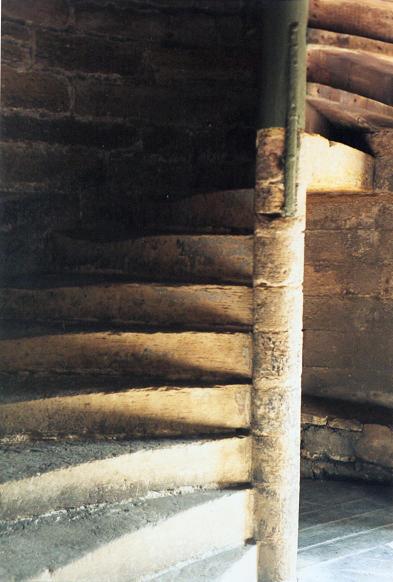well, since there's already a website about it, i guess it's not as far off as one might think:
New Harvest.
hubby and i were talking last night about the ethical dimensions of technological advancements in an islamic framework; his thoughts had been spurred by reading about this research, which aims to engineer actual meat from a single muscle cell, so that theoretically you could have a chicken nugget without ever killing a chicken - and theoretically, a single cell could be used to "grow" enough meat to feed the global population for a year.
back to that exciting thought in a minute. but hubby was citing, for example, space travel - what spurs modern space exploration is, perhaps, a desire to find out where we come from (although i argue that it is also a matter of understanding our place in the universe, etc etc). but as muslims we already know "where we come from," and then there's the ayah from surah ar-rahman, "O ye assembly of Jinns and men! If it be ye can pass beyond the zones of the heavens and the earth, pass ye! not without authority shall ye be able to pass!" (that's yusuf ali). i don't want to speculate rashly, being as far from a qur'anic scholar as one can be, but is it a warning? could it even apply to space exploration? what would our goals be, as humanity, for space travel, in an islamic framework? would it be more islamic, for example, to redirect NASA's billions into addressing social ills and inequalities? (yes, this reminds one of dan brown's "deception point").
that's one aspect of scientific study, just an example (other than human cloning or embryonic stem cell research) that could have moral or religious dimensions. not that there's anything inherently immoral about space travel. but as muslims, do we simply allow our human curiosity to carry us as far as we can possibly go, the way, for example, we know if we CAN clone humans, somebody somewhere is going to do it no matter what the laws? obviously it doesn't have the same ethical implications, but, if we can grow meat instead of ziba-ing animals, should we?
my reaction to "sheets of meat" was "ew." i feel like it's in my fitrah to react that way to the thought of eating meat that never really came from an animal. well, it would, in a way, but the issue of zabihah or not would be moot. technically even vegetarians could eat this meat, depending on why they are vegetarian. but one of the scientists on the project, jason matheny from UMD, has a different take on the reaction:
"It is unnatural, actually culturing things outside of an animal," he says (quoted in a village voice article). "On the other hand, you don't find intensively confined animals on antibiotics and growth promoters in the forest. I think part of the reaction to cultured meat is based on not knowing how their meat is produced."
which doesn't apply if you try to eat only organic, free range meat, for example (that's another blog entry entirely, organic or zabiha?). but still. does this natural human reaction give us a clue as to how we should approach these questions? william saletan in
this slate article argues that culturing meat rather than killing for it is just another step upward in human evolution:
"Every society lives with two kinds of moral problems: the ones it's ready to face, and the ones that will become clear or compelling only in retrospect," he says. "Human sacrifice, slavery, the subjugation of women—every tradition seems normal and indispensable until we're ready, morally and economically, to move beyond it."
i wonder what the mullahs and shaikhs will say about it. i wonder how many more different questions musa will face growing up that we could not even imagine a couple of years ago...
(just to be safe, "prime without the rib" is a subhed from a july 6 2005 UMD newsdesk article...)







